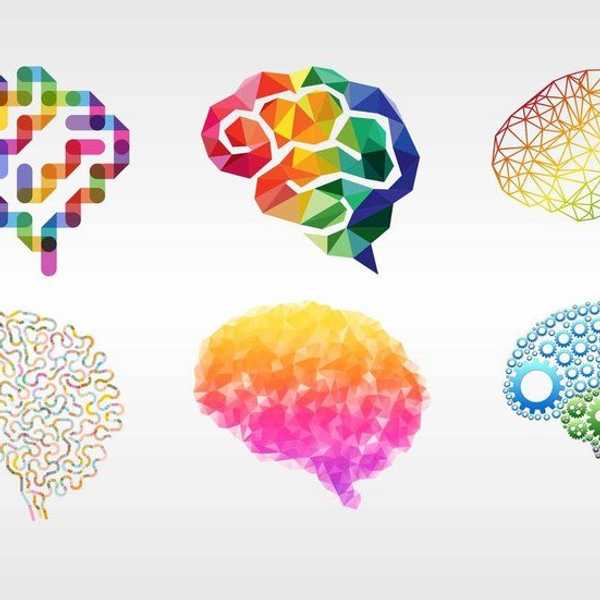For some, choosing a major can be the most difficult task one faces in their collegiate years. Understandably so, the discovery of one’s passion can come much easier for some than for others; some know what they want to do before age ten, however, for others, it may take decades. (To give you some perspective, at age 30, Harrison Ford was still a carpenter and Vera Wang didn’t even design her first dress until she was 40.) However, if you’re entering college (or are in your first or second year) and you’re still deciding what to do with your life (possibly banging your head against a wall, fearing the idea of accumulating loans, and having to work a tedious 9-to-5 job that is in no way related to your major), then here’s a suggestion: major in psychology.
By now, you may be running through the stereotypes associated with psychology majors and thinking, Seriously? Psychology? I have to actually be able to pay off these loans… Shouldn’t I at least give myself a chance? Yes. Yes, you should. Don’t get me wrong, if you have no idea what your passion is, but you do know you want nothing to do with people (or rats) then please, do yourself a favor and see the next article The Odyssey has to offer. However, if helping change the lives of others does sound like a possible career route, then please, read further. Below are the top 3 reasons you should consider major in Psychology.
You like to challenge yourself.
Despite all of the discussion about how far a B.A. or B.S. in Psychology can take someone, the major is still typically ranked among the top five choices nationally. Presumably, one of the reasons for this is the misconception Psychology is easy. Many people believe that psychology is nothing more than the study of “common sense” and therefore is an easy field to master. Granted, getting a degree in psychology (depending on which school you are attending) typically does not present the same difficulties or packed schedule as getting a business degree or a nursing degree. However, the reality is, the curriculum typically dabbles in different topics such as sociology, philosophy, statistics, and biology. A wide-range of knowledge is a necessity in completing the requirements of a psychology major (at least, if you plan to get high marks). It is truly much more challenging than outsiders realize. Another misconception is the value of a bachelor’s degree. Many think they can become a therapist straight out of undergraduate school. In actuality, there is much training involved in becoming a clinician that extends beyond undergraduate courses. The challenge of graduate school does not appeal to everyone, however, if it does for you, this may help weigh in on your decision to pick a major. That being said, you can pursue many jobs in the various fields with simply your bachelor’s degree.
A degree in Psychology can be a bridge to other career routes.
If you have a friend (or maybe a friend of a friend) that is studying psychology in college, you’ve undoubtedly heard the claim that psychology majors can't get jobs (these are probably the same people that said psychology was “easy”). True, if you’re getting a degree strictly for the money, there is a slight lack of financial motive to major in psychology (especially if you have no interest in graduate school). To be fair, there is much more validity to this statement than the last. In 2011, CBS, ranked the college majors with the highest unemployment. Psychology lands on the list 5 separate times (#1 clinical psychology, #5 educational psychology, #7 organizational psychology, #8 miscellaneous psychology, and #12 social psychology). However, what separates a psychology degree from other degrees is the large variety of career paths that are available after one graduates. Graduate programs (and even some undergraduate programs) allow students to tailor their education and degree to focus on specialty areas that appeal to their specific areas of psychology (i.e. clinical psychology, sports psychology, forensic psychology, health psychology, etc.). There are positions in many of these areas of psychology that can be extremely lucrative, they just typically involve a longer educational track. The job possibilities don’t end there. Many who get a B.A. or B.S. in psychology end up pursuing careers in areas such as education or law enforcement. Granted, these are not the most high-paying professions the world has to offer either, but they are some of the most rewarding.
You will learn life skills that you may not in other majors.
There are, of course, many skills you will hone in any major you choose. However, majoring in psychology can prepare you for workplace behavior of all types. Throughout your four-year undergraduate program, you will better learn how to predict and understand behavior (of both individuals and groups), you will gain insight into problematic behaviors, you will learn how to adapt to a variety of different work environments, and you will gain a wide-variety of knowledge in various fields of study. However, debatably the most important skills that is developed in the process of obtaining a degree in psychology is the ability to empathize, a skill not just useful in our roles as employees, but also in our roles as friends, siblings, children, etc. The more you learn about an individual and a situation that they may be facing, the better you are able to relate to aspects of their struggle, making it easier to discuss the situation. As we all grow older, among facing our own unique day-to-day struggles, we become more prone to complex, long-term problems (losing a loved one, for example). In looking for comfort, it’s important to find someone, not just to hold and console you, but that can empathize with you and instill a sense of optimism, no matter the situation.





















